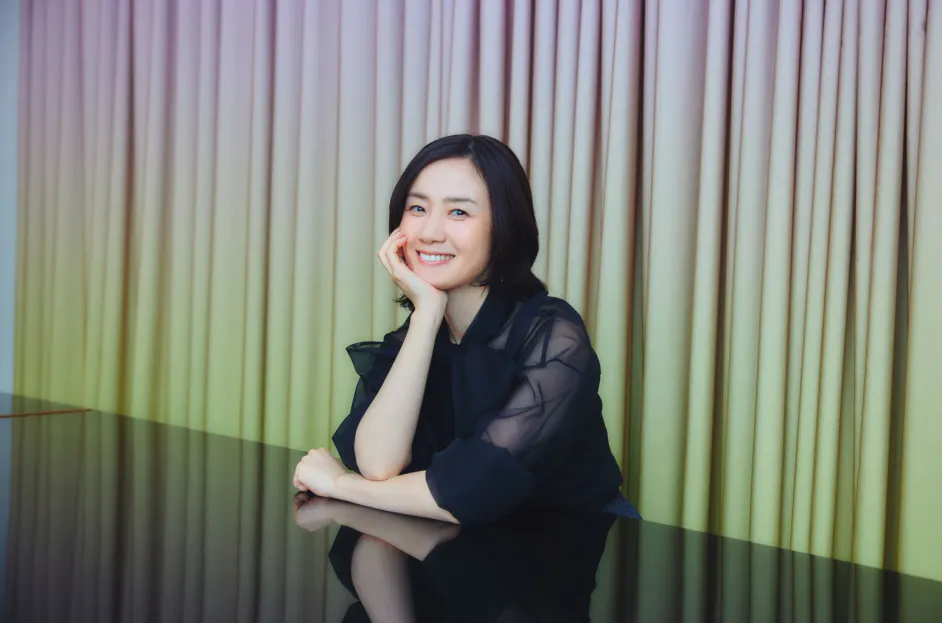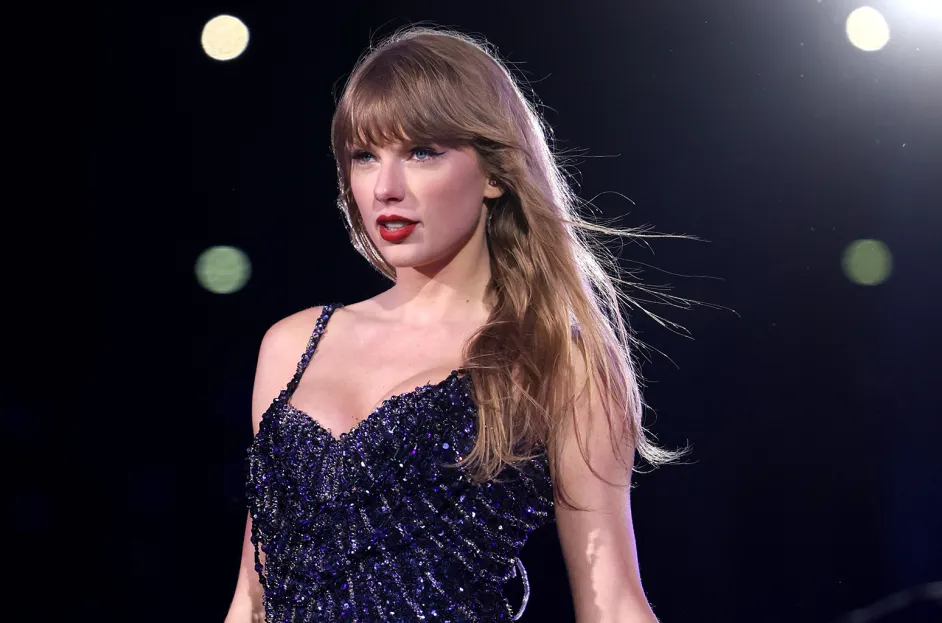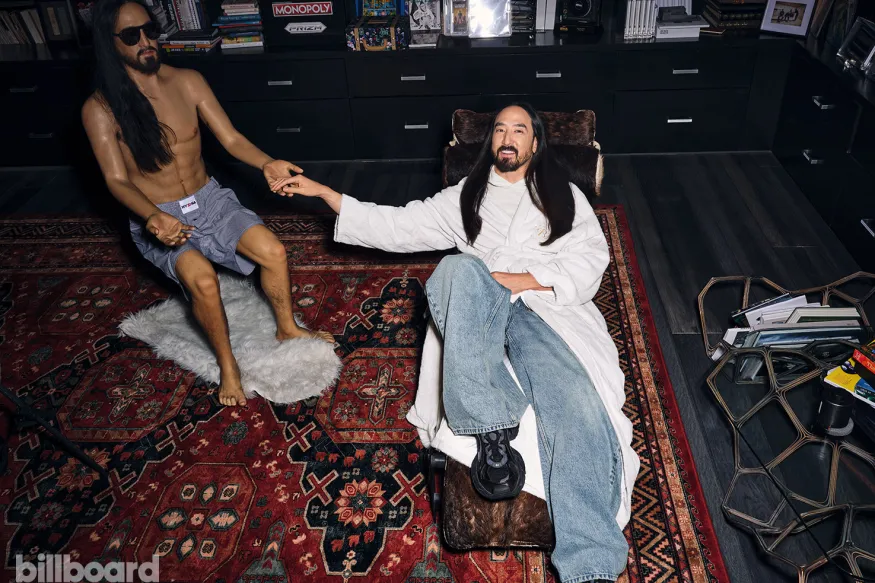Harada sat down with Billboard Japan to chat about her new album and look back on the turning points in her lauded career.
Iconic Japanese singer and actor Tomoyo Harada spoke with Billboard Japan for its Women in Music interview series celebrating female players in the country’s entertainment industry. The WIM initiative in Japan began last year to honor artists, producers and executives who have made significant contributions to music and inspired other women through their work.
Harada debuted as a teenager in 1982 and quickly became a household name as the star of Nobuhiko Obayashi’s The Girl Who Leapt Through Time (1983). She has since established herself as both a prolific actor and singer, with her most recent music release being her fourth cover album of love songs called Ren-ai Shousetsu 4 ~ Ongaku Hikou (“Love Story 4: Music Flight”) that dropped Oct. 25.
While the award-winning superstar’s ephemeral presence and soothing vocals seem unchanged since her debut, she has long been an adult in the entertainment industry and has experienced her share of difficulties along the way. Harada sat down with Billboard Japan to chat about her new album and look back on the turning points in her lauded career, while also sharing the music that has recently been inspiring her.
Congratulations on the release of your new album. What do you like about it?
Unlike an original album, the songs in this set are all numbers that have been loved by many. And, they’ve been sung by many before. When I listen to the different versions of these songs, there are lots of hints hidden in them. There are ways of singing that I would never have thought of, and nuances unique to English that can’t be expressed in Japanese, so I learn a lot about expression. These kinds of discoveries are pleasures that only a cover album can offer.
You mainly selected classics from the ‘60s and ‘70s that have been loved for generations for this collection.
We wanted to present music that would gently accompany people’s daily lives, so I decided on the songs together with producer Goro Ito and my team, taking into consideration the overall balance. Mr. Ito always comes up with lovely, playful arrangements, so I enjoyed that as well during the production.
Some of the songs are deeply personal to me. For example, Neil Young’s “Only Love Can Break Your Heart” is a song that my brother, who is ten years older than me, used to sing in our childhood home in Nagasaki. When my sister, two years older than me, and I were playing, we’d hear him practicing hard in his room, playing the guitar he’d just learned. Hearing this song brings back warm memories of listening to it with my sister.
The songs on the track list will probably evoke various memories for each listener. Did you have any female role models you looked up to back then?
I don’t really remember… Now, I think women with inner fortitude are beautiful. If you have an inner strength, you can stay flexible, you know? I also want to be that kind of person and hope to express that in my music as well.
Did you begin to think that way recently?
No, I think it’s something that gradually grew within me. When you’re young, you sometimes have a tendency to be really serious and stubborn. Like being straightforward is the only way. As you get older, you gain more perspective, and develop a kind of inner strength. I think that kind of strength allows you flexibility that won’t snap easily. Not visible strength, but a mellower kind. I find myself being drawn to that kind of strength now.
Is there anything that you try to be aware of to get closer to that ideal?
Yes, I think it’s important not to obsess about something or think too much about things. If you’re obsessed, you lose perspective, and you might end up limiting your possibilities. I want to listen to what others have to say and not be narrow-minded about things. Once you face what’s in front of you with sincerity and put your energy into it, I think the right balance is to relax and let it take its natural course.
Has being a woman ever affected your career or life in general?
I can’t really think of any examples. I guess I’m fortunate in that I’ve never been treated any differently because I’m a woman.
It’s best not to have experienced such things, of course. Then, regardless of gender, when you experienced difficulties or obstacles, how did you overcome them?
I’m sure I’ve experienced some difficulties, but I don’t think any of them were insurmountable. So this might not answer your question, but here’s something I do remember. Ever since I made my debut in my teens, I worked as both an actor and singer. When Keiichi Suzuki agreed to produce my music in my twenties, I decided to put my previous public image aside for the time being and return to basics in terms of music as if I were making my debut anew. And in doing so, the project turned out really great.
But the radio and TV programs at the time were rigidly divided into genres, and there were some programs that were hard for me to appear in because I was also an actor. I never thought my acting career that I’d worked so hard on would hinder me. But I was confident that we were making good music, so I figured the only thing I could do was just keep at it. Eventually, the song “Romance” that I created in collaboration with the Swedish producer Tore Johansson became widely accepted. From that point on, my music was treated equally as if some door had opened and I felt that I’d won the support of people in the music industry.
When you felt that the music industry was closed off to you, what motivated you to keep going?
Well, I knew that the music I was making with Mr. Suzuki was good. I kept going with a genuine desire to make good music rather than wanting to produce hits. The fact that I kept going without giving up along the way turned out to be significant. I had the pleasure of meeting new fans, and I think it was a major turning point in my career as a singer. I had some experiences in my twenties where my life changed through such encounters with people. You never know where you’ll come across such encounters, so I want to keep my eyes open and cherish the people I meet.
One of the reasons that led to the launch of this interview series is the gender gap on the Billboard Japan charts: in 2022, out of the 100 most popular groups on the year-end tally, the gender breakdown of artists and acts was 58 male, 27 female, and 15 mixed. This ratio hasn’t changed greatly over the years. Are there any female artists that encourage you whenever you hear their songs?
I didn’t know there was a gender imbalance on the chart. I often learn about new music from my niece, who is a college student, and recently I’ve been watching videos by (rappers) Awich and Chanmina with her. I was thrilled when I saw them for the first time. They appear on stage in front of huge audiences so regally, bursting with energy and look spontaneous and free. Their lyrics are also really honest and strong, and it makes you wonder how deep and intense their lives must have been because they both must still be young.
Hearing you mention those two artists is unexpected! It must be reassuring to have someone close by who can teach you new things.
When I found out (Awich) was going to perform “Bad Bitch Bigaku” live on a music program, I stood by in front of the TV to watch. It’s encouraging to know that my niece and other young women are growing up watching artists who express their feelings honestly and verbally like that.
—This interview by Rio Hiral (SOW SWEET PUBLISHING) first appeared on Billboard Japan
![]() Post Views: 3,773
Post Views: 3,773





